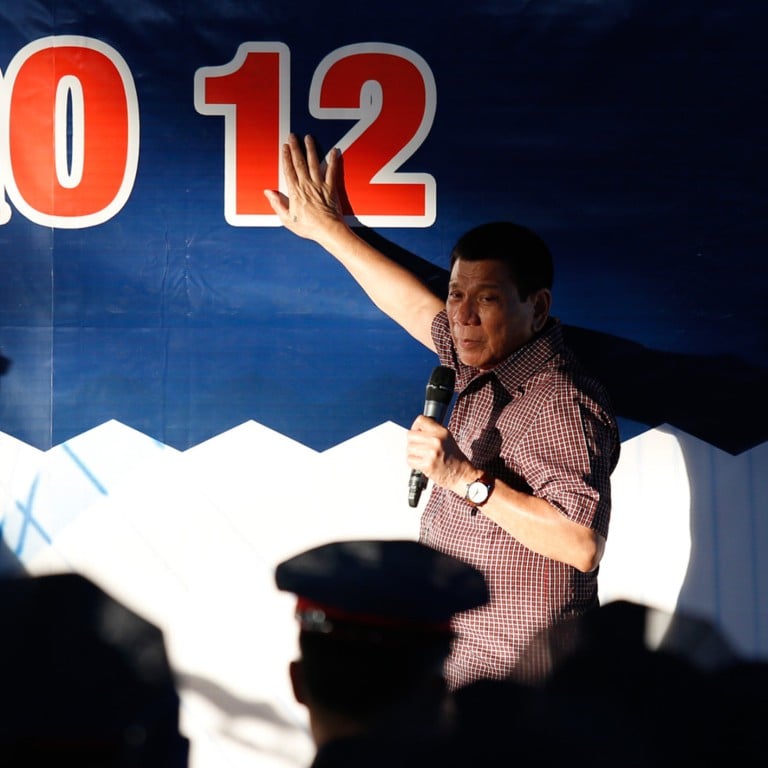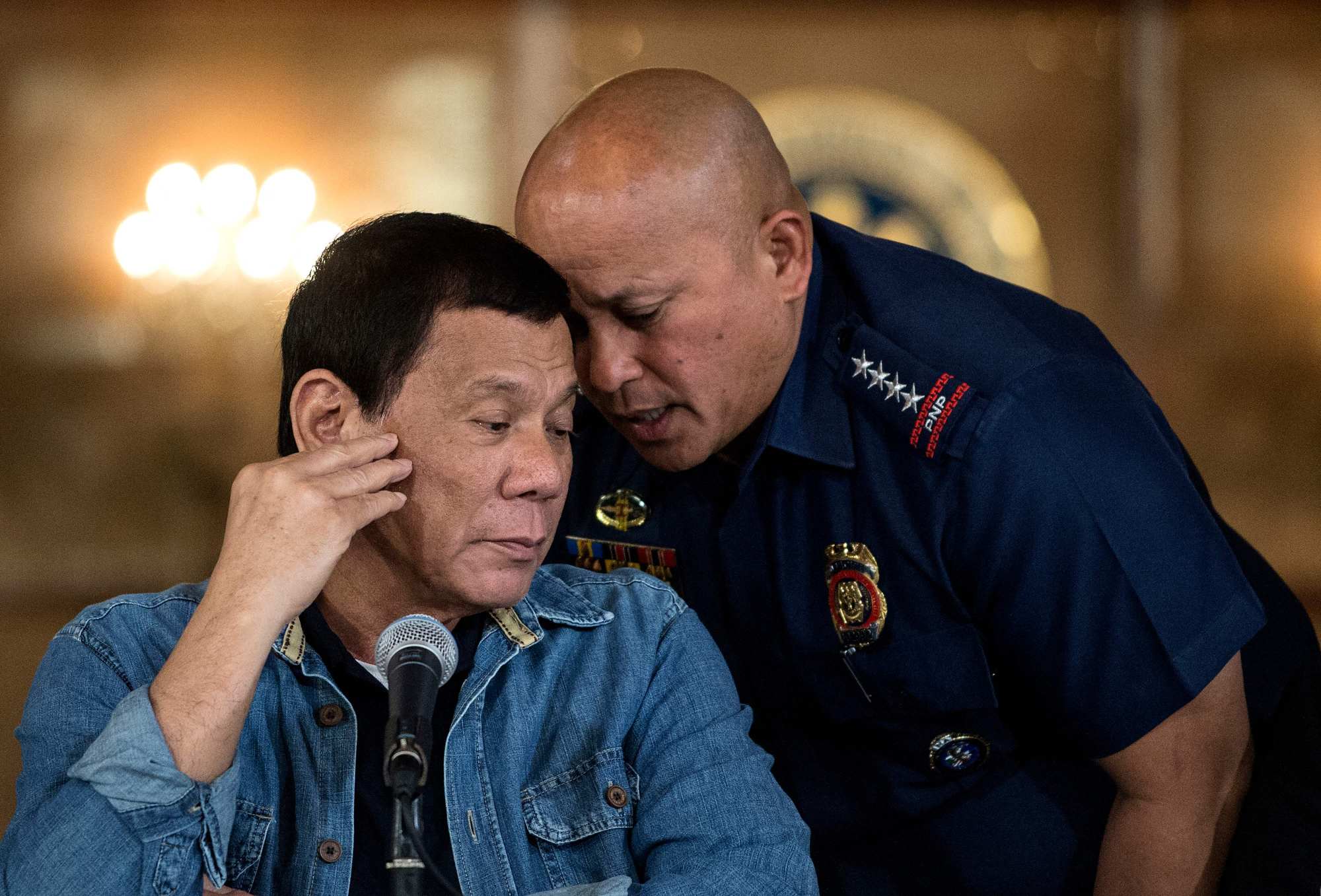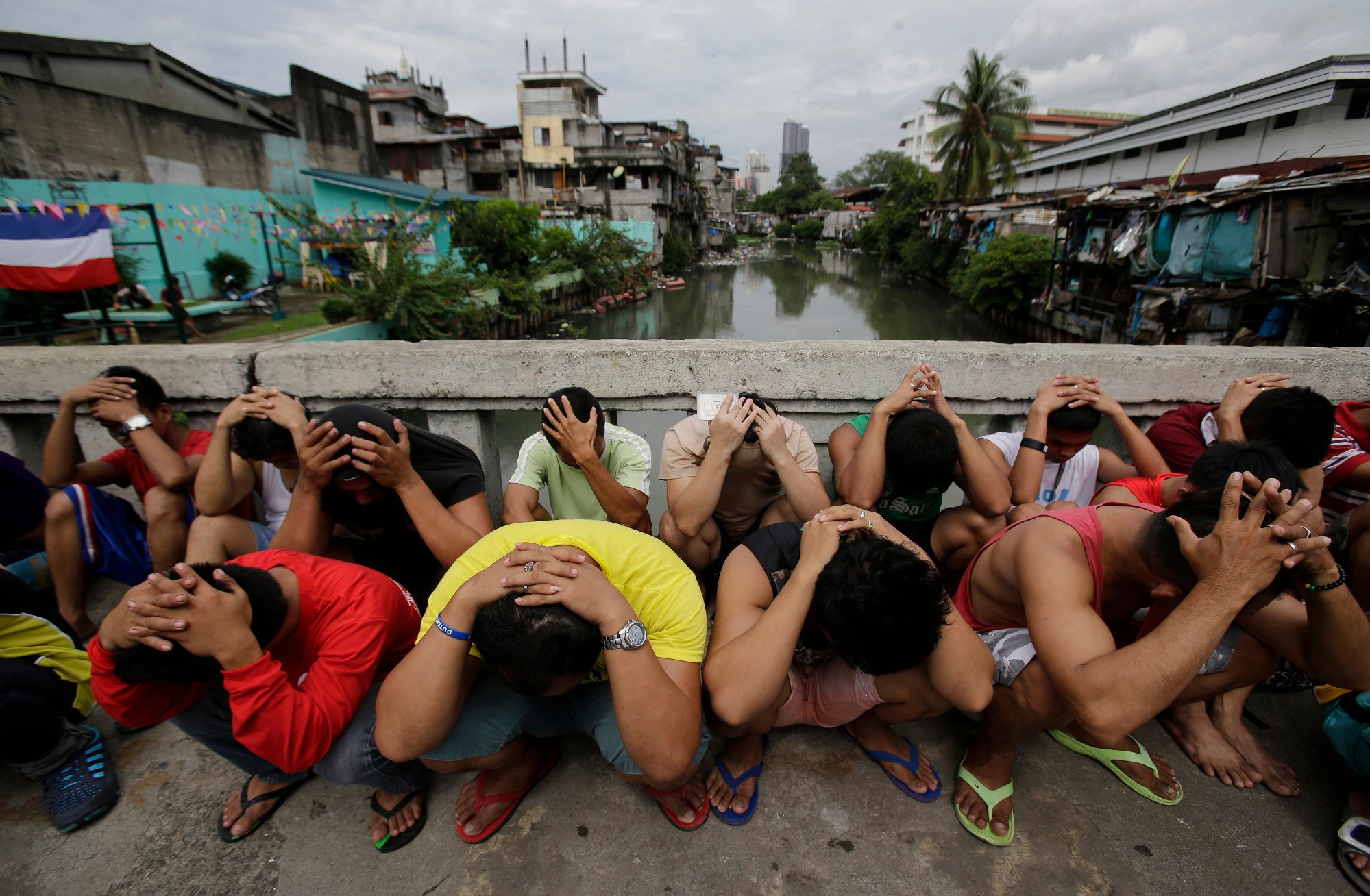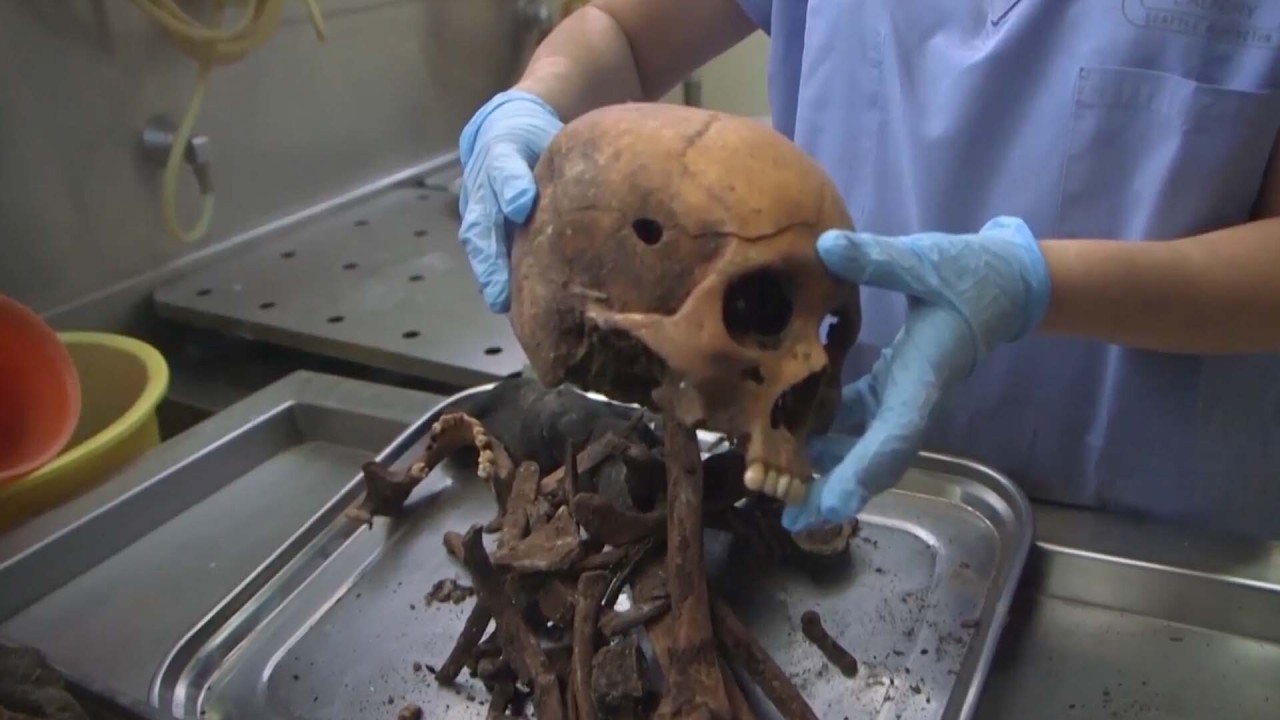
ICC call for Philippine translators a sign Duterte’s crimes against humanity trial ‘moving forward’
- The ICC has called for translators in Tagalog and Cebuano, languages involved in the crimes against humanity trial against the ex-Philippine leader
- While the move shows the investigation phase is in ‘full swing’, it is not definite it will lead to the issuance of arrest warrants and a trial
In what could be an ominous sign for Rodrigo Duterte, the International Criminal Court (ICC) has quietly put out a call for “freelance translators in Tagalog and Cebuano” – languages involved in the crimes against humanity trial the former Philippine president could face.
The ICC announced in 2016 it was following Duterte’s bloody war on drugs, but in the years following its interest seemed to wane. Advertisements for translators in late March show the case is still moving, with an observer suggesting there could be nudges from the government of President Ferdinand Marcos Jnr.
Former senator Antonio Trillanes told This Week in Asia the move was “significant because it’s a clear indication that the investigation phase is in full swing”.
He added, “according to my information, the investigation is in its final stages and the [ICC’s] Office of the Prosecutor might file an application for a warrant of arrest soon thereafter.”
Harry Roque Jnr, former spokesman of Duterte and a human rights lawyer, also acknowledged that the call for translators indicated “that they’re moving forward”. He told This Week in Asia that Duterte had been consulting him on the case and he was standing as the former president’s lawyer “for all matters relating to the ICC”.
Philippine ex-policeman accuses Duterte’s children of planning drug killings
Political analyst Ronald Llamas said: “I don’t know if [Marcos Jnr] will bring the ICC case to a logical conclusion in order to serve an international warrant – but that could be part of his foreign policy, to rebrand his Marcos name.”
Ruben Carranza of the International Centre for Transitional Justice cautioned: “Even if a warrant or summons is issued by the court, serving the warrant or summons and transferring the person arrested will open legal issues. Even the issuance of a warrant can be appealed in certain cases.”
The ICC ads, which appeared in several online job sites, call for Tagalog and Cebuano translators to work at the language services section of the ICC’s office of the prosecutor. Those accepted will “produce self-reviewed translations covering a wide range of topics including, but not limited to, legal, military, medical, forensic, human rights, administrative and financial matters”.
Applicants are cautioned that “the content of what is to be interpreted may on occasion risk being of an upsetting or disturbing nature”.

Carranza said that “because the Philippine situation has reached the investigation stage, the ICC would have already needed more translators for documents to be filed in court and possibly interpreters if witnesses are being interviewed”.
The ICC case grew out of the main plank of Duterte’s presidency: his swaggering promise to violently eradicate the country’s alleged drug problem. From 2016 to 2022 state forces indulged in bloodshed that claimed thousands of lives, including those of dozens of children.
Dispensing with due process, police in multiple operations allegedly singled out, rounded up and arbitrarily murdered hundreds of suspects, accused criminals, and bystanders. In 2019, when told that a three-year-old girl had been shot dead by policemen, one of Duterte’s cronies, police general turned senator Ronald dela Rosa, shrugged and said “sh*t happens”.
Human Rights Watch senior researcher Carlos Conde told This Week in Asia that, as per the official figure of the Philippine National Police, 6,262 “drug personalities” were killed by law enforcers during Duterte’s six-year term.
“Some NGOs give varying figures of as little as 8,000 to as many as 30,000. We use the official figure because our view is that even if it’s super conservative – it doesn’t include those killed by unidentified killers – it’s still a lot.”
Philippines’ ‘warning sign’ as political insults may lead to ‘civil war’
In 2016, ICC’s then chief prosecutor Fatou Bensouda said her organisation was closely tracking the government’s drug war. A year later, Filipino lawyer Jude Sabio filed a complaint at the ICC against the Duterte administration.
Duterte exploded in fury, threatening to pull the Philippines out of the ICC. He also resorted to crude and violent invective, calling Bensouda “that black woman” and vowing to throw a grenade at the ICC “so we’ll all go to hell together”.
In 2019, the Philippines did pull out of the ICC, and in 2021 Sabio, who withdrew his case, died of a heart attack, but the international court had already started moves to open a preliminary investigation.
Trillanes told This Week in Asia: “To be honest, I feel frustrated by the very slow pace of the whole investigation phase, considering that our communication was first filed back in 2017. But then again, Duterte’s unilateral withdrawal from the ICC plus their dilatory tactics along with the Covid-19 pandemic delayed the process even further.”
Although many Filipinos backed Duterte’s war on drugs, a February survey by Octa Research showed 59 per cent of respondents supported the country rejoining the ICC, and 55 per cent said the government should cooperate with the ICC.
But it is not definite that the ICC investigation will lead to the issuance of arrest warrants and a trial.
Carranza warned that “the process takes long, can be traumatising or even dangerous for witnesses and their families and then still be unsatisfying or even unjust – because of acquittals”.
Observers say the attitude of the current Philippine administration could determine how fast the case progresses.
Marcos Jnr has been seen to have initially played it coy, despite relations between two of the Philippines’ most powerful political clans recently nosediving. When he assumed office, the president had said the Philippines would never rejoin the ICC, yet he has recently hinted at reconsidering.

And while Marcos Jnr has said he opposes any foreign interference, such as ICC investigators coming to the country, this could change, as Carranza pointed out: “It is possible that the ICC prosecutor has asked for warrants – not just summons – but is waiting for a signal from Marcos Jr that they will cooperate and serve those warrants. Which Marcos Jnr will of course weaponise in their contest versus the Dutertes.”
Duterte, meanwhile, and a host of officials who could find themselves served warrants, are bracing themselves for the worst.
Roque told This Week in Asia: “Let’s just say we have a very clear road map on what to do if there is a case filed against him in the ICC.”


